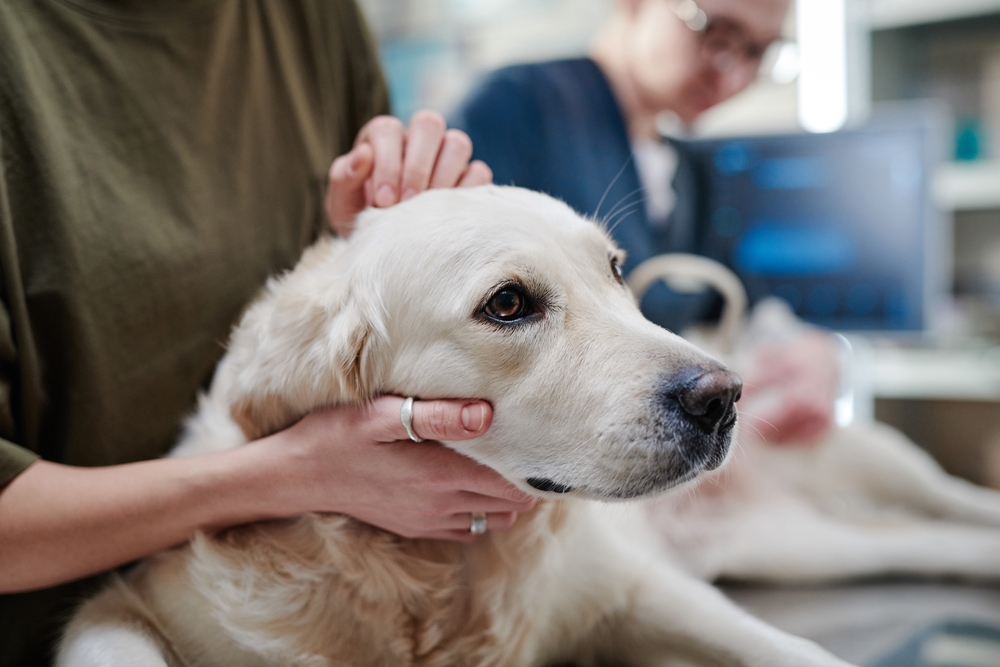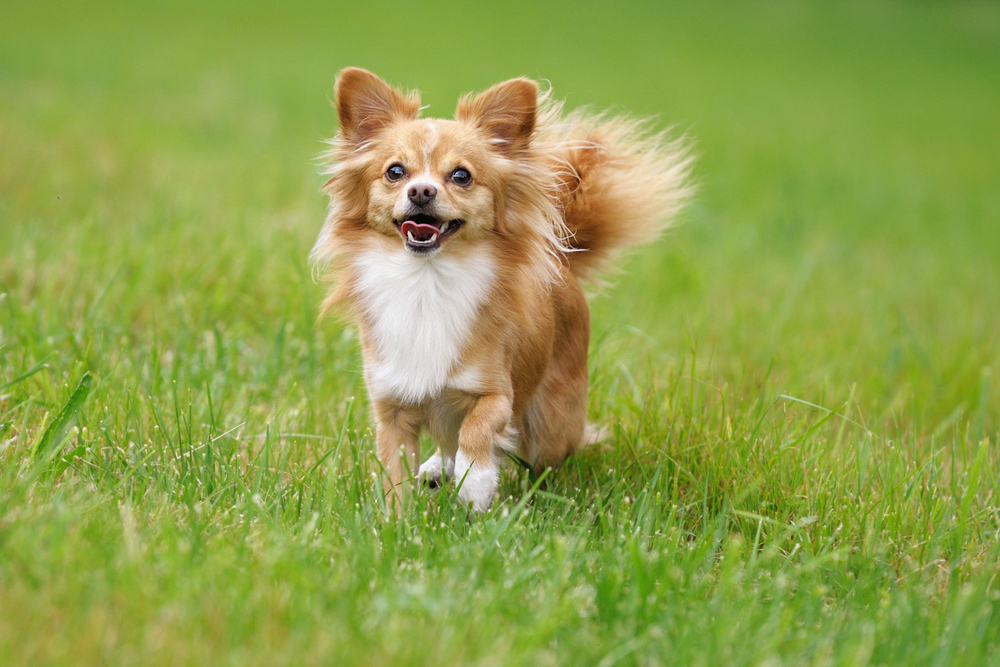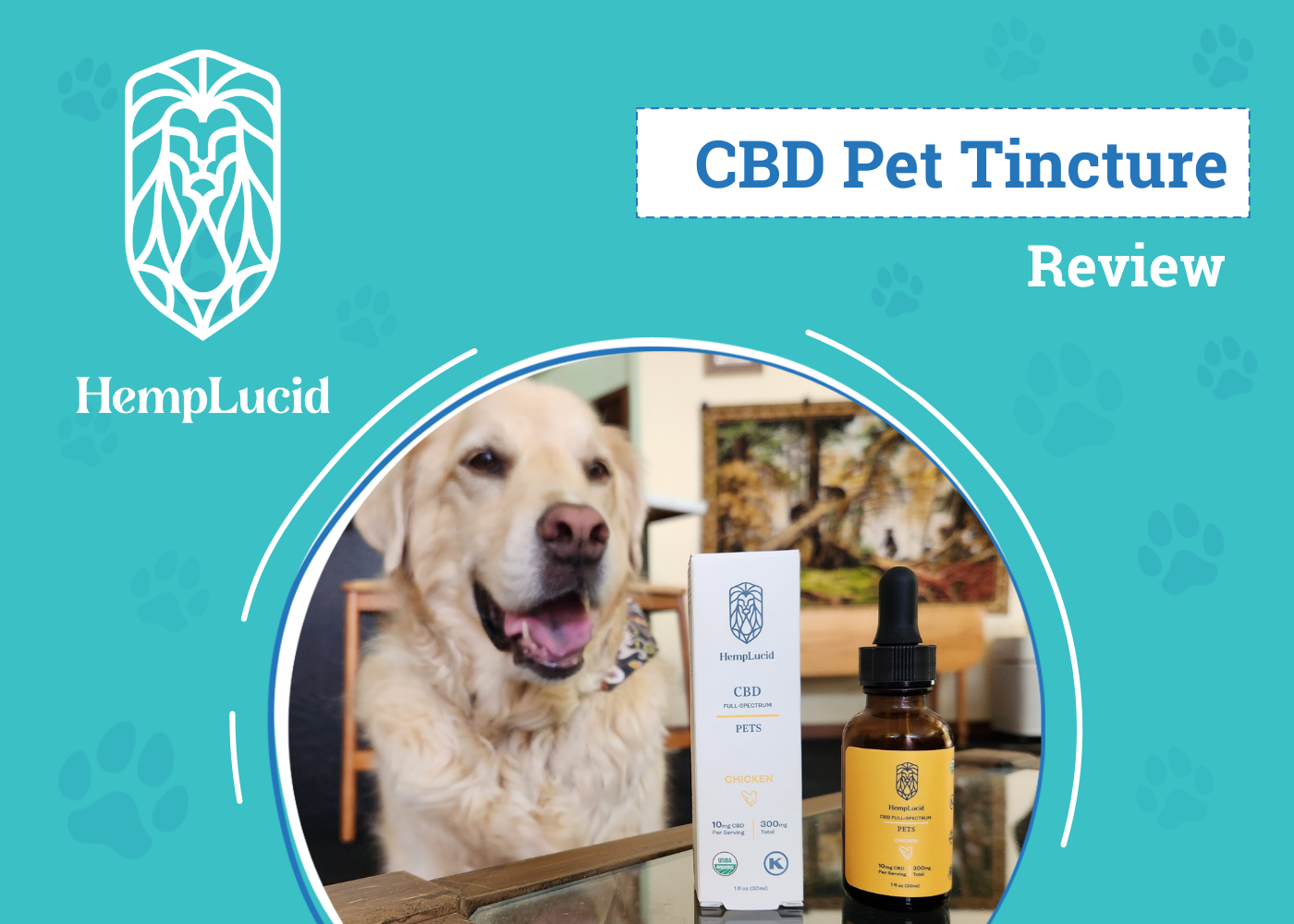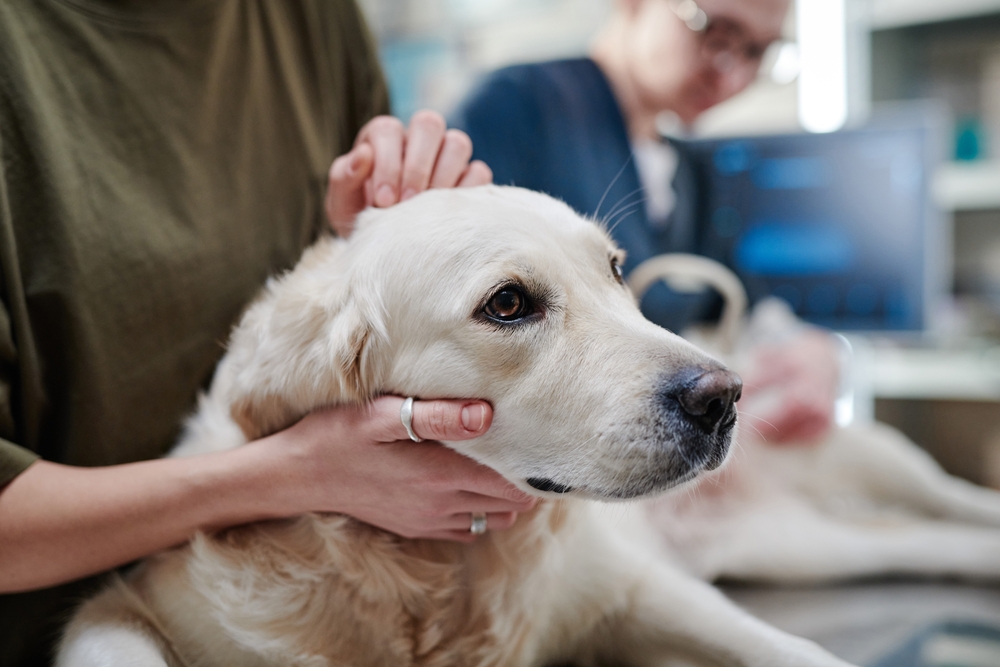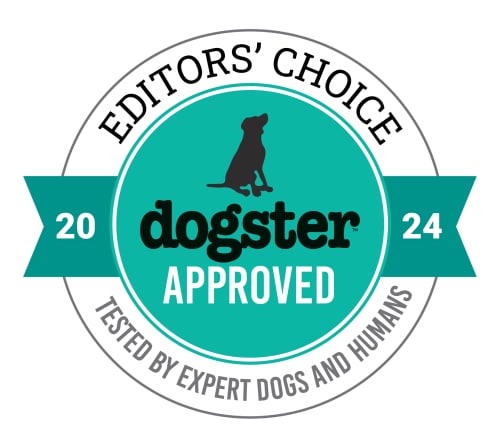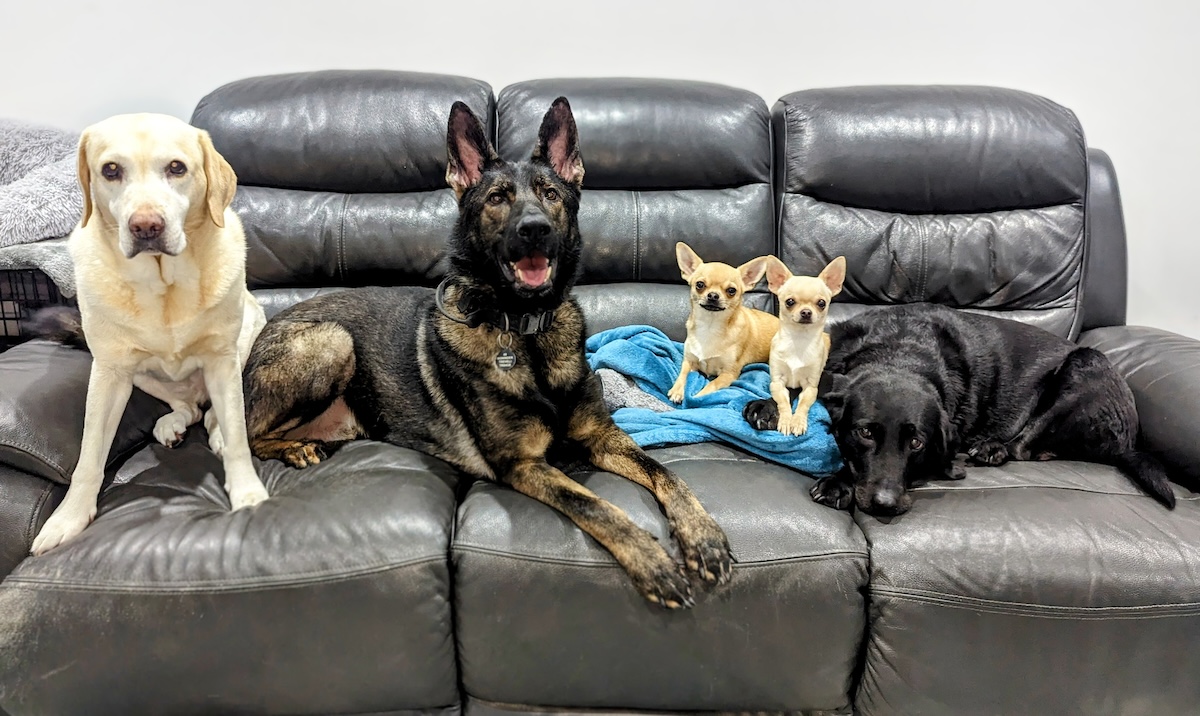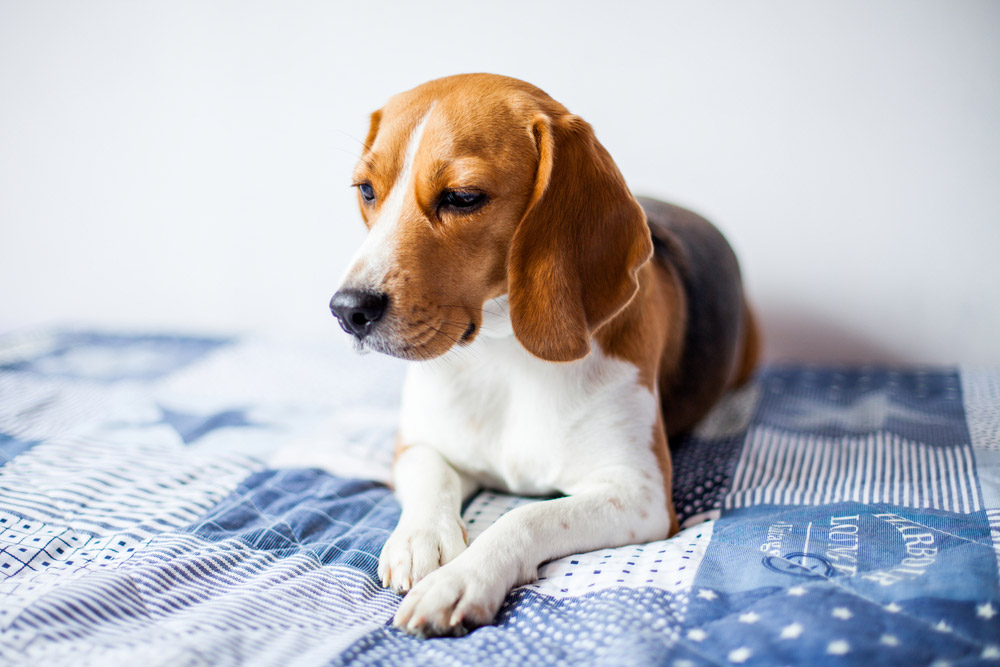Click to Skip Ahead
My dog, Tula, isn’t a big fan of the vets. She pulls to get away as we’re walking in the door, although she does settle quite well once we’re in the waiting room. When we first got her, she had no problem going in, but having had a couple of operations and been left in the surgery overnight more than once, she’s developed a level of anxiety about the whole experience.
But, I know it could be worse. Some dogs suffer massive anxiety that makes it impossible to get them through the front door, and it can even lead to reactive behavior.
Below, we look at some of the reasons dogs hate the vet, as well as what owners can do to help alleviate the fear or anxiety.
The 7 Reasons Why Dogs Hate the Vet
Fear and anxiety are the main causes of a dog’s dislike of the vet. This can range from a fear of the unknown to them picking up on the anxiety from other visitors and even from you.
1. Past Experiences
Tula has had two major operations, including one to cut away a slice of bone in her leg to ensure the elbow sits properly. She’s also been through multiple X-rays and CT scans, all of which require anesthesia and time spent at the surgery without us.
Now, when she recognizes that she’s getting close to the vet surgery she pulls away and tries to avoid going in. She can be coaxed through the door, but she’s anxious and doesn’t want a repeat of her previous visits.
This type of anxiety is common because vet visits invariably involve some kind of poking and prodding, at the very least.
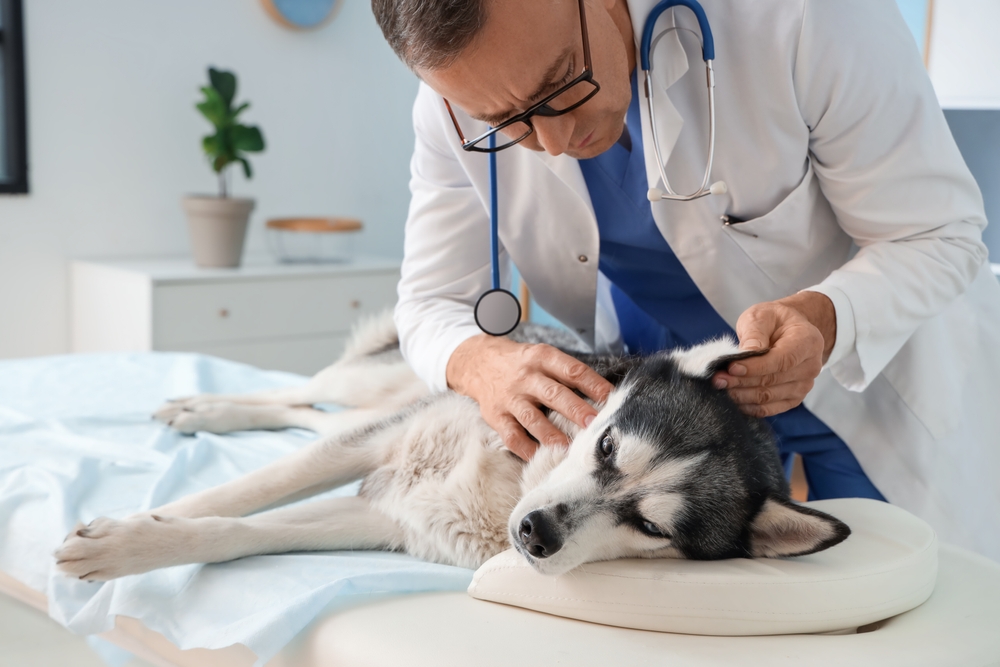
2. Strong Sounds and Smells
Dogs have amazing senses of smell, and this is thought to include the ability to pick up on anxiety and fear in other animals. The bright lights, sometimes slippery floors, strong smells and often loud noises can all contribute to the build up of stress for your dog in the waiting room before they even get examined by your vet.
3. Fear of Other Animals
Some dogs love to meet, greet, and socialize with other dogs. Others are afraid or anxious around them. This fear could be because of negative encounters in the past or because they haven’t been fully socialized. In any case, being stuck in a waiting room confronted by other dogs is more than enough to set off a fearful response in any anxious dog.
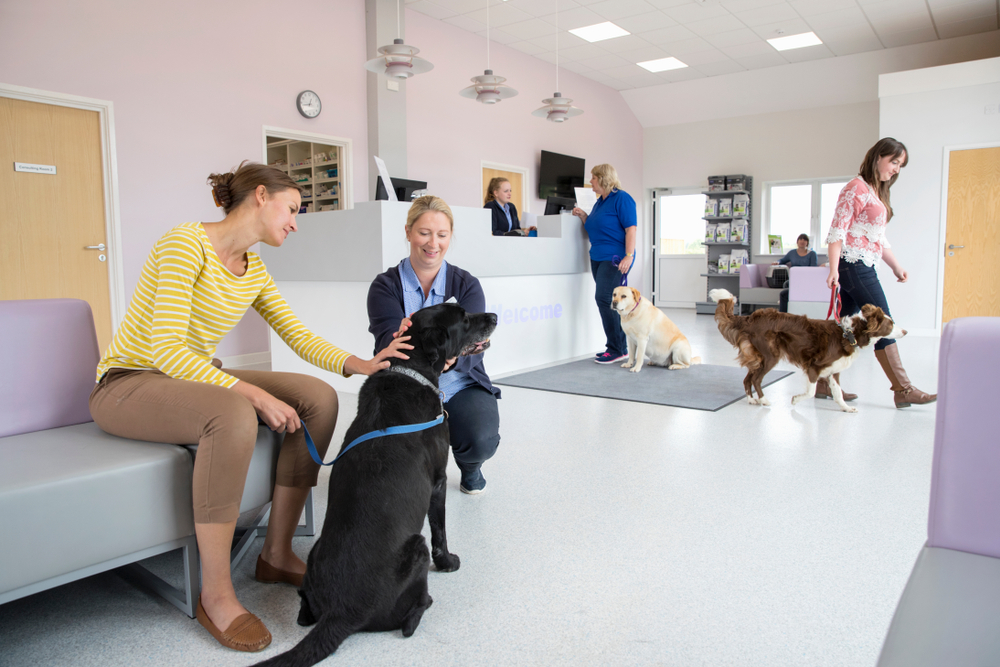
4. A Strange Environment
Tula has spent a lot of time visiting the vet, but some dogs only have to visit once a year for their vaccinations or a cursory checkup. While these dogs are unlikely to suffer anxiety triggered by past traumatic events, they can suffer fear of the unknown.
The vet waiting room and surgery are sterile, utilitarian environments, that are enough to cause anxiety in the most mild-mannered pups.
5. Separation Anxiety
If you do have to leave your dog overnight or during the day, they could hate the fact that they’re being forced to be apart from you. Separation anxiety can lead to unwanted behaviors including excessive vocalization, inappropriate toileting, and chewing.
If your dog has been left at the vet before, they may expect the same separation whenever it visits.
What To Do About It
Whether it’s for annual vaccinations, a dental check-up, or because your dog needs to visit for an emergency, there are times when you have to visit the vet. Taking an anxious or scared dog to the vet makes the experience more difficult for both of you.
There are some steps you can take to help make everything more bearable for both of you.
1. Desensitization
Desensitization means exposing your dog to the whole vet visiting experience gradually. Initially, this might mean getting your dog used to getting in the car. Then, you can travel to the vet and walk up to and past the door without going in.
Desensitization is usually coupled with counter-conditioning which changes the way the dog feels about vet visits by associating them with something positive like praise, high-value treats, or fuss. Give your dog lots of praise and rewards when they remain calm or react positively. Keep doing this, on different days, until your dog is happy to get in the car and walk past the vet surgery.
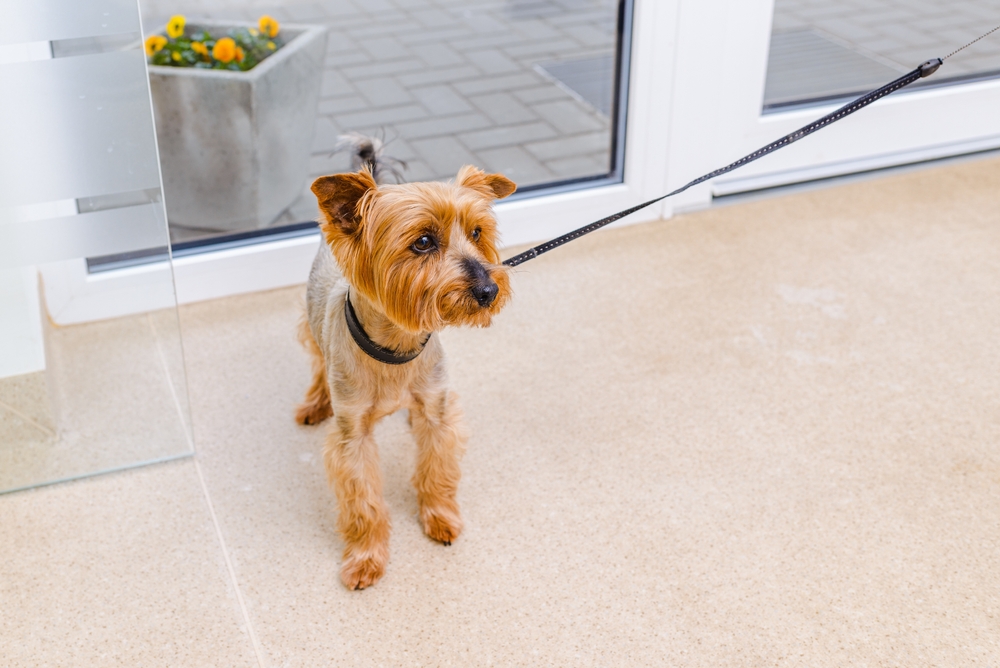
2. Happy Visits
Some vet surgeries are happy to welcome dogs and their owners even when they don’t have an appointment. This is especially true if they sell food and other products at reception. Check with the surgery first, however, because some have quiet times and slots set aside for anxious and aggressive dogs. Some vets and practices have undertaken specific Fear Free training.
If your vet does allow this, treat this as the next step in desensitization and take your dog for happy visits. Buy them a treat and reward them for positive behavior.
3. Book Quiet Times
As mentioned, some vet surgeries set aside time for dogs that are anxious, and even if they don’t, if you let the receptionist know that your dog is nervous, especially if they are reactive, when visiting the vet, they will do what they can to make the visit easier and as peaceful as possible for everybody.
They might even be able to arrange an appointment outside normal hours or get you to wait outside or in your car until the vet is ready to see your pup.
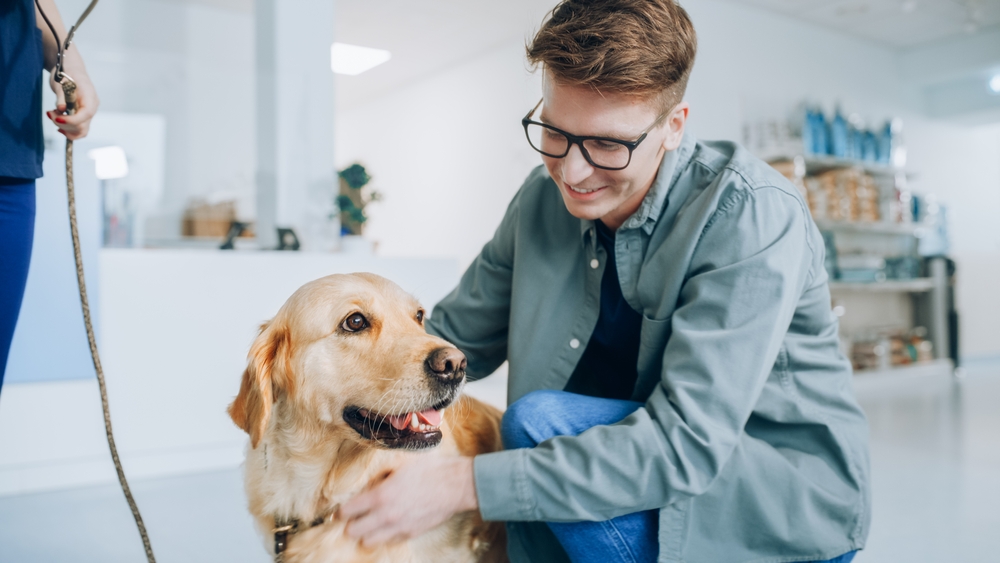
4. Go for a Walk First
If your dog is tired when it arrives at the vet reception, it will be more likely to just lie down and maybe even sleep. And a sleeping dog is less likely to be reactive or anxious.
At the very least, it gives your pup a chance to pee and poop, making it less likely they will do so in the waiting room.
5. Reward Positive Interactions
Shouting and scolding your dog when it is anxious will only make matters worse and it will reinforce the negative connection your dog has to the vet. Instead, reward and praise positive behavior. Get your dog to sit calmly at the desk, and when they do, give lots of praise and quickly present a treat.
When your dog sits calmly for the vet, give them a treat. And, when the whole ordeal is over, give lots of praise and take your dog for a walk to its favorite park or beach.
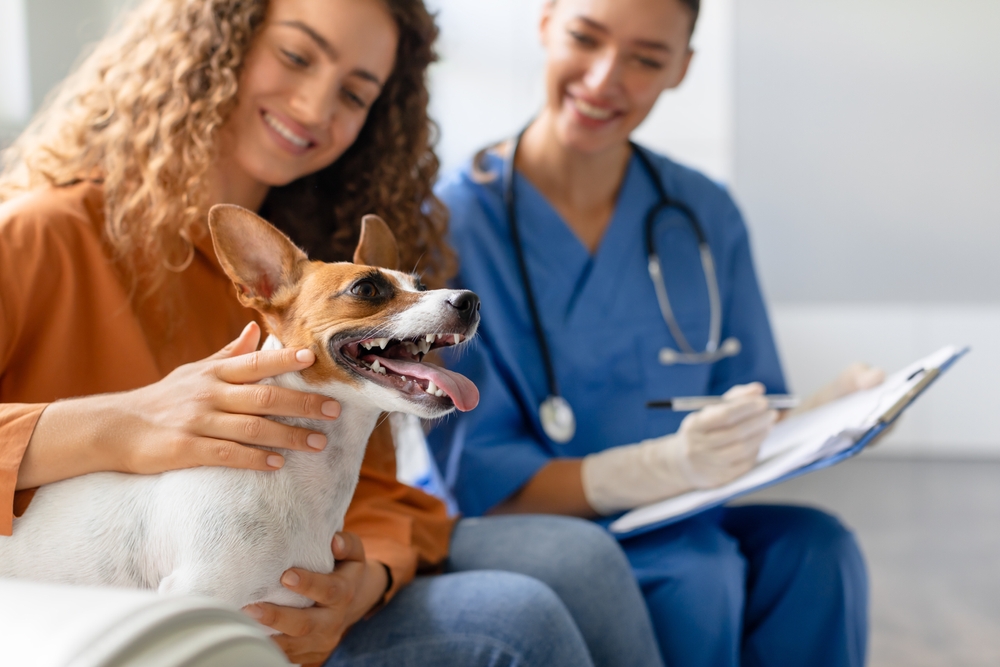
6. Medication
If your dog is anxious you can try supplements and pheromone products to help calm them. Sometimes your vet may also suggest using prescription anxiolytic or sedative medications prior to a vet visit. They can be particularly helpful if your dog needs treatment but there is no time for gradual desensitization and counterconditioning beforehand.
7. Don’t Reinforce Anxiety
Many owners inadvertently reinforce the anxiety in their dogs. If you are feeling anxious and stressed your dog will pick up on it, try and stay as calm as possible.
If your dog is getting anxious, sometimes your vet might advise interrupting a procedure or examination and trying again at another time, if it is not an emergency situation. Listening to your dog, stopping before they get too stressed, and putting a plan in place for a future visit, often gives the best chance of preventing your dog’s hate of the vet from getting worse and future vet visits increasingly difficult.
Is It Normal for Dogs to Hate the Vet?
For dogs that have had previous negative encounters at the vet, or those that are already anxious when they see other scared or reactive dogs, fear is quite a normal reaction. Try to make the experience positive.
Don’t react to negative behavior but offer lots of praise and treats when your dog acts or reacts positively. Combine the vet visit with your dog’s favorite walk or even a trip to get your dog’s favorite frozen yogurt treat.
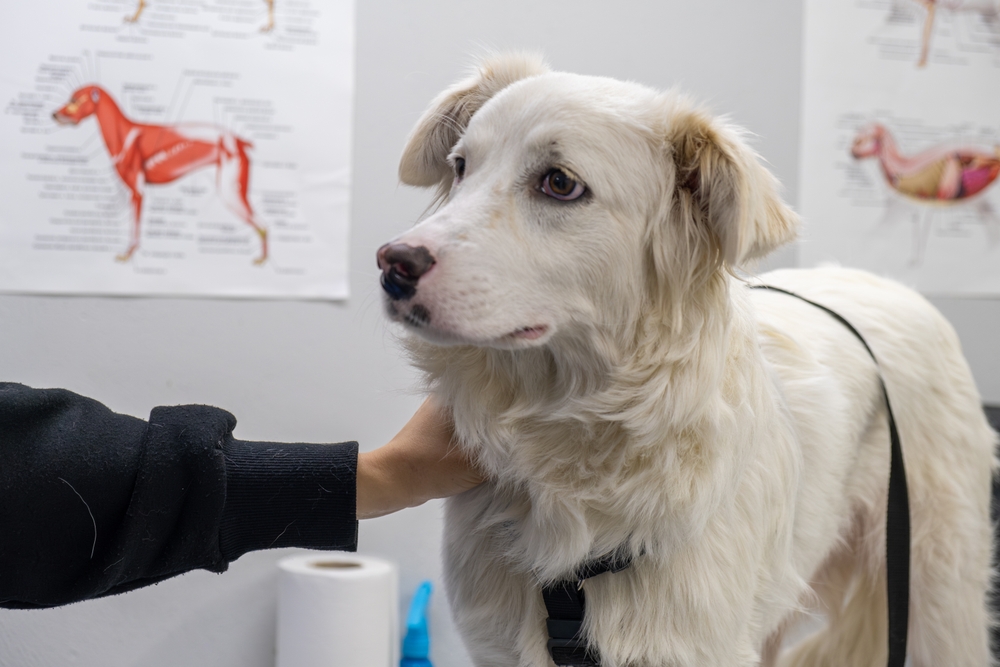
Is It Okay to Not Take Your Dog to the Vet?
At some point, every dog needs to visit the vet. Whether it is for annual checkups, procedures like neutering, or emergencies, your dog will need to go to the vet, and the whole process will be easier for everybody if you can reduce anxiety and fear in your dog.
Desensitize them to the experience, reward positive behavior, and don’t reinforce the anxiety by shouting or berating your dog.
Conclusion
Some dogs are perfectly calm when visiting the vet, but many dogs find it an anxiety-ridden experience. Especially if they have had negative vet experiences in the past. Speak to your vet surgery to see if they welcome dogs outside allotted appointments and use the opportunity for some happy visits that don’t have negative outcomes.
Exercise your dog before going to the vet and be generous with praise and rewards on the day of the visit. As a final option, you can speak to your vet about medications that will help calm your dog for the visit.
Featured Image Credit: AnnaStills, Shutterstock

